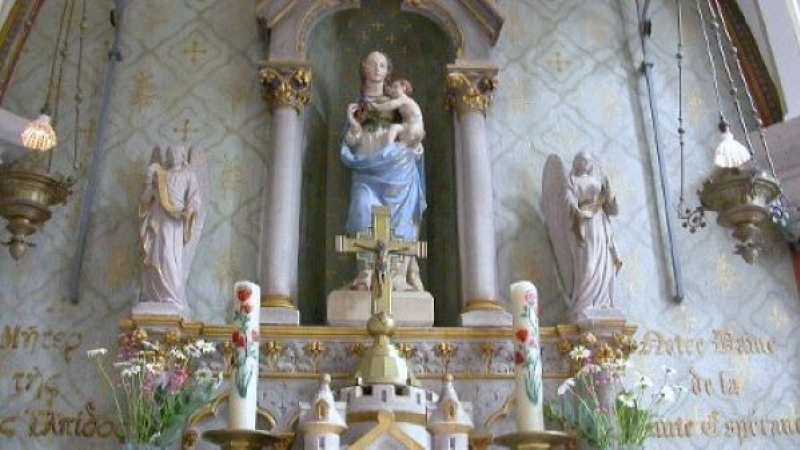 The virtue of hope causes us to yearn for the supernatural truth acknowledged in faith and to trust in God’s promises. It is the virtue that makes us aspire to God with boundless trust in His gracious help.
The virtue of hope causes us to yearn for the supernatural truth acknowledged in faith and to trust in God’s promises. It is the virtue that makes us aspire to God with boundless trust in His gracious help.
There was even one moment in which we can say, that Mary alone preserved hope: on Holy Saturday, when Christ lay in the tomb and everything seemed to be in vain and even those who were most loyal in the faith in Christ doubted because of His horrible death, Mary preserved this hope, without seeing how it could be fulfilled.
This is hope in its purest form, namely a reliance on God without any human assurances, solely based upon His word, in which one places unconditional trust. Therefore, the Church applies to her the saying of Eternal Wisdom: “in me omnis spes vitae et virtutis – in me is all hope of life and of virtue” [Ecclesiasticus 24:15].
In fact, the certainty and the confidence that I will remain true to God to the end is not of my own doing, but is rather an unmerited grace which comes to me, as all graces do, through the Immaculata. Thus St. Bernard says that Mary is tota ratio spei meae – the comprehensive cause, the whole reason-for-being of my hope. That means that both of the basic attitudes of hope have their firm foundation and their highest expression in Mary.
– Hope as a yearning for God turns a human being away from the false “hopes” in worldly goods and toward the genuine, eternal goods which alone can slake his thirst and satisfy his hunger. In this sense hope is actually the virtue of conversion, which means precisely “turning away from worldly goods and turning to God”.
When faith shows us the glory of eternal happiness, the yearning to possess these goods grows in our hearts. And the more this yearning grows, the more peaceful the soul becomes, the less it is tormented by the desires and wishes of the world, which formerly plunged it into such great unrest. St. Augustine says that the soul that is created for God remains restless until it has found its rest in God, just as the needle of a compass is restless until it points exactly toward the magnetic pole.
– Hope, however, is also self-abandonment to God’s promises. If Mary is called “our hope”, then her presence is the guarantee that these promises will also be fulfilled, indeed, that they have already begun to be fulfilled in her. She was in fact the hope of our first parents, when they received the great promise about the Woman who would crush the serpent’s head. Since then she has been the hope of the human race. Isaiah connects the promise of the Messiah with the miracle of the virgin birth.
But especially after Christ’s Ascension, Mary remains the hope of Christians. God gave us Mary to be our hope. After all, it is his business how he prefers to answer our prayers. Whoever calls on Mary invokes his dearest creature, touches the most tender spot in his Heart — and therefore finds that his prayer is answered.
Trouble teaches us to pray, and trouble is what really teaches us to prize the loyalty and help of a friend. In every age there has been great trouble among the Christian people, and out of this trouble has grown trust in Mary. And because it has never been disappointed, no one can uproot it again from the heart of the Christian people.
https://fsspx.news/en/news-events/news/spes-nostra-salve-59946


